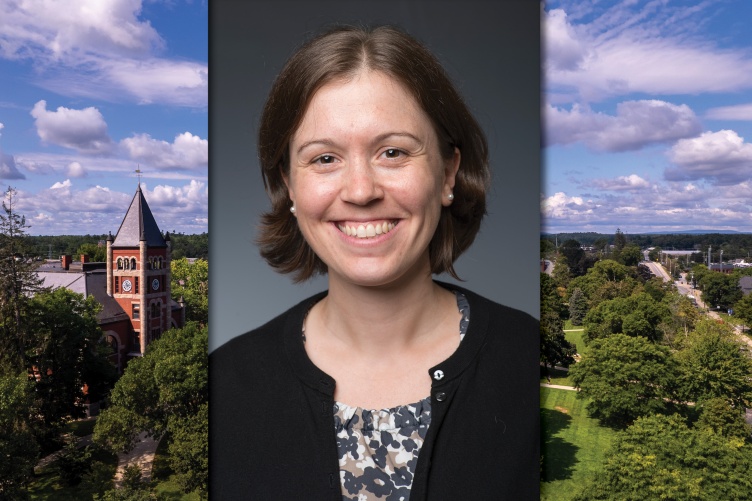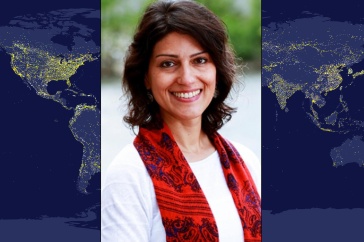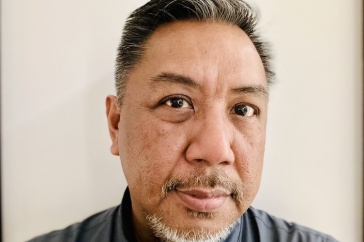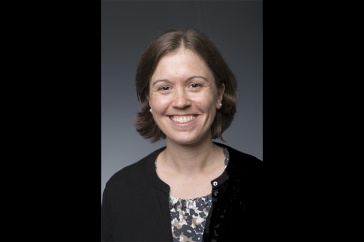
Dr. Carolyn Arcand doesn’t shy away from the issues and intricacies of the world; she embraces them.
“I'm always keeping an eye on things that are unfolding around me in terms of policy relevance,” she says. “I've always been interested in the complexity of how policies come together.”
Dr. Arcand is a senior lecturer at the Carsey School of Public Policy, where she has taught since the school’s very first semester. Of the wide variety of her lessons, one constant is her knack for taking inspiration from real-world challenges. Even decades before she arrived at UNH, she connected to a challenge right outside her door, albeit of a different nature. Dr. Arcand grew up just outside of Boston, “right along the marathon route.” She remembers getting the day off from school every Patriots’ Day—the Monday of the Boston Marathon—and watching the runners compete. Today, she has run several herself.
“My favorites are the ones right in my backyard,” she says of the hobby. “I have races that I return to every year like the Maine Marathon in October… You can't beat it for locale.”
As for the world-famous one in her hometown?
“On my bucket list,” she says smiling.
Dr. Arcand left suburban Boston after high school for Syracuse University, where the earliest seeds of her public policy career were planted. She wasn’t quite sure what she wanted to do after college, but she had an affinity for the richness of economics. In 2001, she completed her bachelor’s in accounting and entrepreneurship and dove into the private sector. Dr. Arcand got a job as an accountant, first at a national accounting firm and later at a tech company in Denver, Colorado. While she can appreciate how the experience helped her pedagogy in the years to come, she knew almost right away that it wasn’t for her.
“No, not my cup of tea,” Dr. Arcand says looking back. “I liked a part [of accounting]. I can have it be a part of what I do, but not totally what I do.”
She decamped back to New England, this time in Portland, Maine. Within a year of moving, Dr. Arcand enrolled in the University of Southern Maine’s master’s program for public policy and management, which suited her perfectly. She found herself drawn to the intersection of academic theories and actual results, where the vibrant and challenging reality is never fully black or white.
“The intent of the policy isn’t always what ends up playing out in the real world. So I’ve always appreciated that complexity: trying to understand the gray areas of a policy.”
“The intent of the policy isn’t always what ends up playing out in the real world. So I’ve always appreciated that complexity: trying to understand the gray areas of a policy.”
Dr. Arcand continued to work in the private sector as she earned her master’s, but she shifted her career path after graduating in 2006. In addition to her degree in public policy and management, Dr. Arcand also earned a graduate certificate in nonprofit management. This helped open the door to a job at the university itself, first coordinating student government operations and later acting as associate state director of the Maine Small Business Development Centers.
SBDCs are state-based organizations run through partnerships between the federal Small Business Administration, state government, and universities. In Maine, the SBDC is based at the University of Southern Maine and provides free resources for small businesses, helping to spur community development. While not officially part of the state government, they are quasi-governmental, acting as a link between the state and private enterprises. Working in an office that connected her knowledge of organizational policy to the citizens and companies directly affected by those policies was a major step in the right direction for her career, but it still didn’t feel fully right.
“It was great, but I couldn’t shake my interest in public policy. So I went back for a PhD down at UMass Boston.”
For the next five years, Dr. Arcand commuted from Maine to Massachusetts, doing her homework on the long bus rides on I-95. She loved the people in the program and wrote her dissertation on the benefits and risks experienced by mothers attending for-profit colleges. Dr. Arcand credits that research with sparking her interest in the field of care work, which would soon become a specialty of hers. In 2011, she received her second master’s in public policy and in 2014 she earned her doctorate. That year was also her first at UNH, where she started as a lecturer in the Political Science and Public Administration department. When the Carsey Institute became its own school outright, she joined their faculty.
 Dr Arcand is somewhat of a jack-of-all-trades at Carsey, teaching courses in all four of the school’s programs: public administration, public policy, community development, and the newest addition, global conflict and human security. Counterintuitively, Dr. Arcand is currently the only member of the Carsey faculty who has a doctorate in public policy. She explains that because Carsey’s scholarship is interdisciplinary by nature, the school needs economists, sociologists, political scientists, and the like to cover topics in their individual fields. Those unique specialties all help contribute to the depth of the education that students need.
Dr Arcand is somewhat of a jack-of-all-trades at Carsey, teaching courses in all four of the school’s programs: public administration, public policy, community development, and the newest addition, global conflict and human security. Counterintuitively, Dr. Arcand is currently the only member of the Carsey faculty who has a doctorate in public policy. She explains that because Carsey’s scholarship is interdisciplinary by nature, the school needs economists, sociologists, political scientists, and the like to cover topics in their individual fields. Those unique specialties all help contribute to the depth of the education that students need.
“I've actually pulled from some of [the work coming out of Carsey] to discuss in my classes,” she explains. “Students like to know what’s going on at the Carsey school and what’s going on around them.”
Thanks to her background in the integrative disciplines of public policy and management, Dr. Arcand teaches widely and helps graduate students synthesize the information from all the different subjects they’re covering.
“One thing that I enjoy is the ability to take my interdisciplinary framework and teach students about the inner workings of the policy process,” she says. “I always say right off the bat: it’s not a linear process; it’s not like a math equation. There are so many gray areas and so many complexities to explore. What makes good policy analysts is [knowing] how to dig in and appreciate those complexities.”
One of the ways that Dr. Arcand has been able to help students appreciate the complexities of designing and implementing public policies is through making connections to real-world issues. A few years ago, she heard about a local debate over financial burdens in public spaces. Overrun by summer tourists, a small town in Maine proposed adding parking fees to their local parks. However, the residents in a neighboring town also loved the park and rebelled at the proposal, threatening to add parking fees to their local parks as a way to recoup the cost. The situation was not only contentious but seemed like a lose-lose for all involved. Amidst the raucous controversy, Dr. Arcand saw possibility.
In 2019, she created a classroom simulation for her students called Who Pays? What’s Fair? based on the municipal conflict. The simulation allowed students to put their newfound knowledge of public finance to the test in a situation where tensions were high: mirroring the difficulties that policy-makers face once theory becomes practice. The exercise was a smash success. Dr. Arcand received such positive feedback from students that she wrote up her findings and submitted them to a teaching case competition at her alma mater, Syracuse University. In 2020, her efforts took home the top honors from the Program for the Advancement of Research on Conflict and Collaboration.
“I could kind of just see the puzzle pieces coming together, how this could make a really neat stimulation for students to try to figure out. Especially where a policy issue is local and there’s a lot of different opinions,” she says. Dr. Arcand outlined how other educators can run the award-winning simulation in their classrooms and shared the instructions, which can now be accessed by anyone. “It’s a free resource!”
While she still considers herself a researcher at heart, teaching has become the centerpoint of Dr. Arcand’s career at Carsey. Working at the School of Public Policy has allowed her to intricately link the theory on paper to the practice on the ground, which has been gratifying for both teacher and students. And because so many people in her classes are working professionals, every semester she gets to hear different students explain how her lessons have impacted their jobs.
“I love hearing about how [students] are using things at work,” she says. “It’s a bright spot of Carsey as a graduate school: this is a place where students are immediately able to take their interests and start applying what they’ve learned.”
“I love hearing about how [students] are using things at work,” she says. “It’s a bright spot of Carsey as a graduate school: this is a place where students are immediately able to take their interests and start applying what they’ve learned.”
When Dr. Arcand reflects on her career at Carsey, she appreciates the role she has played in helping students achieve moments of clarity, where everything clicks into place. For her, these aren’t exactly eureka moments, where someone might find a solution to an individual problem, but something broader: the way that whole semesters of study can sometimes coalesce into a new and deep understanding. As Dr. Arcand explains, the coursework she teaches is interdisciplinary by nature. Her public policy students have to weave threads from a myriad of other subjects—including both hard skills and abstract concepts—in order to excel. Few things can match the feeling of watching students fully grasp the same complexities that have captivated her for nearly twenty years.
“You see these things come together and then by the last couple of classes you can just tell that things are starting to click,” says Dr. Arcand. “That’s just so rewarding. I love those moments.”
Reported by Benjamin Scott Savard, ‘23G

















































